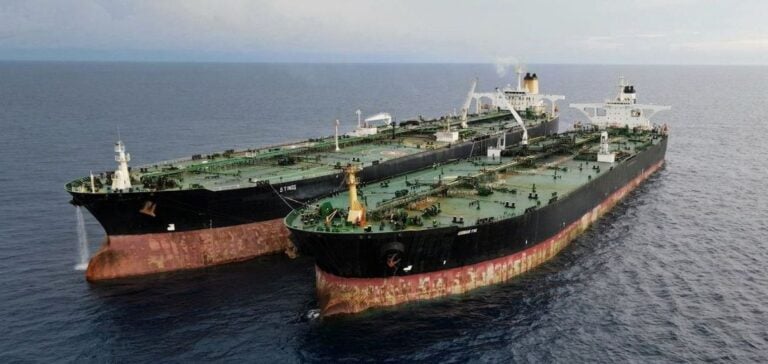The UK has announced a tightening of sanctions against a series of Russian vessels operating under foreign flags.
These ships, dubbed the “phantom fleet”, are used to transport oil and circumvent restrictions imposed by G7 countries and their allies since the invasion of Ukraine in February 2022.
According to the UK Foreign Office, these sanctions prohibit ten of these vessels from accessing British ports and registering in the UK shipping register.
Previous sanctions having failed to deter Moscow from using these methods, London is stepping up its efforts to cut off access to world energy markets, the keystone of Russian state financing.
Oil exports will account for around 25% of Russia’s budget in 2023, and these new measures are designed to further restrict this vital source of revenue.
Leverage effect on Russian oil trade
The announcement comes at the same time as talks between British Foreign Secretary David Lammy and US Secretary of State Antony Blinken in Ukraine.
The aim of these meetings is to coordinate a coherent Western response to Russian bypass strategies.
The aim is to tighten the regulatory net around Russian oil exports and discourage the use of uninsured or flag-of-convenience vessels.
The new restrictions imposed by London mark the third round of measures against such vessels.
Three of the ten ships targeted have been identified as having carried over $5 billion worth of Russian oil since the start of the conflict.
The British government accuses these ships of allowing Moscow to continue its unrestricted oil sales, thereby helping to finance military operations in Ukraine.
Consequences for Russian Energy Markets and Strategies
The repercussions of sanctions on world energy markets could be significant.
By restricting Russia’s ability to export oil, London and its allies seek to influence not only trade flows, but also oil prices on world markets.
Although the immediate effects may be limited by Russia’s efforts to diversify its trade routes and partners, these actions create increased uncertainty for players in the energy sector.
In response, Moscow may redouble its efforts to forge alliances with non-aligned countries, or seek to circumvent sanctions through barter mechanisms or trade in local currencies.
Maritime operators, as well as insurers and reinsurers in the sector, could also face increased compliance and political risk challenges.
Implications for Western Energy Policies
These new measures are part of a wider strategy by the G7 countries to limit Russia’s energy revenues while minimizing disruption to their own economies.
The coordination between London and Washington, symbolized by the joint visit of Lammy and Blinken to Ukraine, shows a clear desire to maintain continuous pressure on Moscow.
British sanctions add a new layer of complexity for operators in the energy supply chain.
In addition to shipping restrictions, further regulations could be envisaged, potentially affecting the banking sector, financial services, and even third-party players who indirectly facilitate the Russian oil trade.
Towards tighter energy penalties
Market players must anticipate new measures targeting not only the “phantom fleet”, but also other key sectors of the Russian economy.
The strategy of gradual sanctions is designed to increase Russia’s operating costs, thereby reducing its ability to finance its war effort.
Energy sector experts should keep a close eye on future developments, as the sanctions dynamic remains fluid and likely to harden depending on the situation in Ukraine.
The consequences for oil markets, shipping logistics and international relations underline the importance of heightened vigilance and rapid adaptation to the new realities of global trade in a context of prolonged conflict.






















